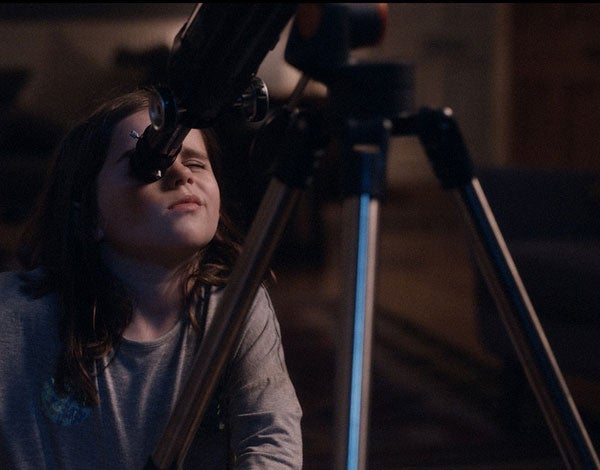
A Lasting Power of Attorney is for life, not just for Christmas, says Rosalind Hetherington of Maurice Turnor Gardner
It’s that time of year again, when the heavyweights of British retail release their Christmas adverts. This year’s crop has not disappointed. While there some have striking similarities (putting on a brave face ‘present face’ features in quite a few), others are ostensibly more altruistic in theme: this year some of the biggest adverts are supporting charities.
Sainsbury’s features the famously haphazard cat Mog in support of Save the Children, and the John Lewis advert featuring the little girl, Lily, and the man on the moon, is in association with Age UK. The subtext is, of course, to raise awareness of the fact that some elderly people are lonely at Christmas.
The latter also brings to mind another issue that can be faced by the older generation: the man in the moon cannot speak to Lily to thank her for his Christmas present. Unfortunately, through illness or accident, some (both old and young) can equally become unable to communicate, leaving them reliant on others to decide what their wishes are and to make decisions for them.
This is a stressful and difficult situation to be in, but a small amount of forward planning can help alleviate some of the stress and worry. For example, Lasting Powers of Attorney allow an individual (the donor) to give others (his attorneys) the power to make decisions on his behalf, decisions that he has lost the capacity to make himself, whether physically or mentally. Having a property and financial affairs LPA in place gives attorneys access to the donor’s assets, which could help pay for care during long term illness.
By virtue of his appointment under an LPA, the attorney is put in the ‘shoes’ of the donor, but what can he do? Returning to the theme of this post, could he give Christmas presents on behalf of the donor? Indeed he can.
Under the law and regulations governing the use of LPAs, it is within an attorney’s power to make gifts. However, the attorney only has the power to make these gifts (i) on ‘customary occasions’ (like Christmas) and (ii) to family members or those connected with the donor (subject to a number of other conditions).
These are strict conditions that even the donor cannot alter, by means of express permission or explicit instructions in his LPA. So if the man in the moon wanted his attorney to send a thank you present to Lily, he wouldn’t be able to. And unless Lily is connected in some way to the man in the moon, his attorney would not be able to send her a Christmas present either.
Furthermore, gifts should only be made by the attorney if they are in the best interests of the donor and the making of such gifts should not affect the donor’s quality of life or care, therefore they must be ‘affordable’.
Obviously this is a subjective qualification. What is appropriate and affordable for one individual is completely inappropriate for another. For example, recently a Hong Kong businessman bought a diamond costing many tens of millions of pounds for his young daughter for her birthday. Therefore, the value or cost of gifts an attorney could give under an LPA for such an individual could, theoretically, be huge.
In contrast, the man in the moon may not be able to afford to be so generous. Quite simply, the gift must be in line which the donor’s spending while he had capacity and of course, an attorney cannot make a gift to himself.
Regardless of what attorneys can, and cannot, do, the important message is to plan ahead for yourself… and additionally, to make sure that the elderly people in your life aren’t alone this Christmas.
Rosalind Hetherington works at boutique private wealth law firm Maurice Turnor Gardner LLP






